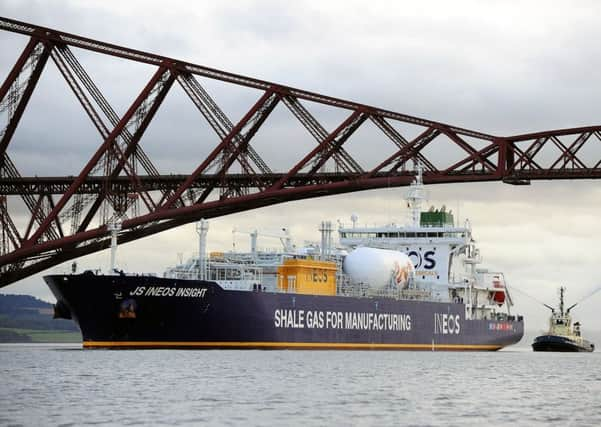Fracking not viable in UK's 'deformed' rocks


Professor John Underhill, chief scientist at Heriot-Watt University, says the country’s complex geology means fracking is not a viable option and is “overhyped” as a solution for keeping the lights on.
He says folds and faults in rock formations deep underground, caused by movements of the earth’s tectonic plates millions of years ago, mean places identified as harbouring substantial shale oil and gas reserves may be unsuitable for commercial drilling.
Advertisement
Hide AdAdvertisement
Hide Ad“The inherent complexity of the sedimentary basins has not been fully appreciated or articulated and, as a result, the opportunity has been overhyped,” he said.
“For hydraulic fracturing to be successful, a number of geological criteria must be met. The source rock should have a high organic content, a good thickness, be sufficiently porous and have the right mineralogy. The organic matter must have been buried to a sufficient depth and heated to the degree that the source rock produces substantial amounts of gas or oil.
“However, in locations where fulfilment of some of the criteria have led to large potential deposits, uplift and the faulted structure of the basins are detrimental to its ultimate recovery.”
The UK uses more than 65 billion cubic metres of gas to heat 80 per cent of its 25 million homes and generate around a quarter of its electricity every year. Despite an increasing shift towards renewable energy, demand for gas is likely to remain high for the foreseeable future.
Shale gas production as taken off in the US, sparking a rush to replicate the move as North Sea reserves run out.
Three areas of the UK, including Scotland’s Midland Valley, have been earmarked as potential hotspots and exploration licences have already been issued.
Petrochemical giant Ineos holds the majority stake in the only Scottish licence.
A moratorium on fracking, or hydraulic fracturing, has been in place in Scotland since 2015 in response to concerns over the environmental impacts. The Scottish Government is due to decide on a permanent ban soon.
Advertisement
Hide AdAdvertisement
Hide AdIn the meantime, Ineos is shipping US shale gas to its plant in Grangemouth.
But Prof Underhill says firms with plans to frack need to put the unique nature of the UK’s geology at the centre of their considerations, since the places with the biggest resources may actually be unworkable.
“There is a need to factor this considerable and fundamental geological uncertainty into the economic equation,” he said.
“The science shows that our country’s geology is simply unsuitable for shale oil and gas production. The implication that because fracking works in the US it must also work here is wrong.”
He added: “It would be extremely unwise to rely on shale gas to ride to the rescue of the UK’s gas needs only to discover that we’re 55 million years too late.”
Environmental activists have welcomed the professor’s analysis, which they say “adds weight” to the case against fracking.
They claim the dangers to people and the planet should see the practise ruled out.
Mary Church, head of campaigns for Friends of the Earth Scotland, said: “Fracking presents a whole host of risks to people’s health and our local environment, while in the context of irreversible climate change, going after a new source of fossil fuels is quite literally the last thing we should be doing.
Advertisement
Hide AdAdvertisement
Hide Ad“Support for fracking is at an all-time low. Over 60,000 people have responded to a consultation on fracking in Scotland, with the vast majority calling for an all-out ban.
“We urge the Scottish Government to put an end to this discussion by banning fracking once and for all, and focus instead on a rapid and fair transition to a zero-carbon economy.”